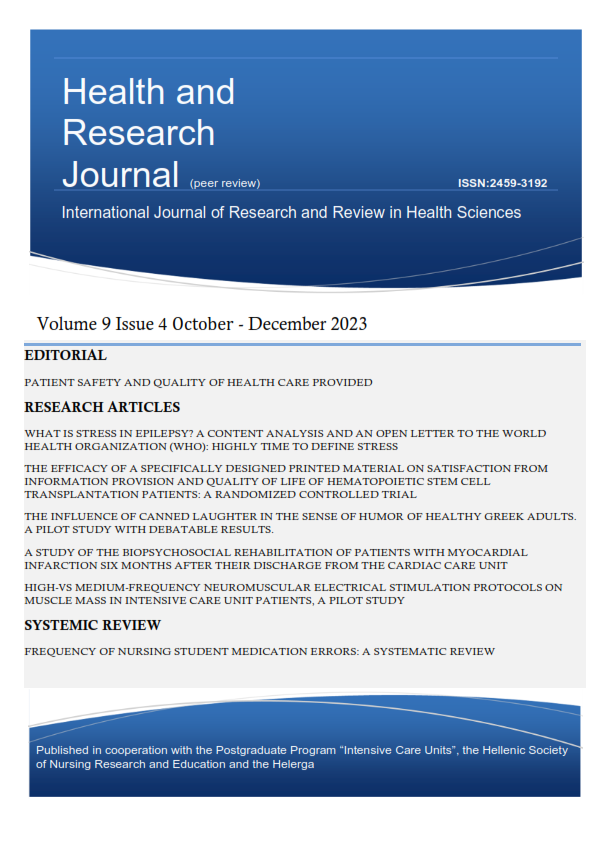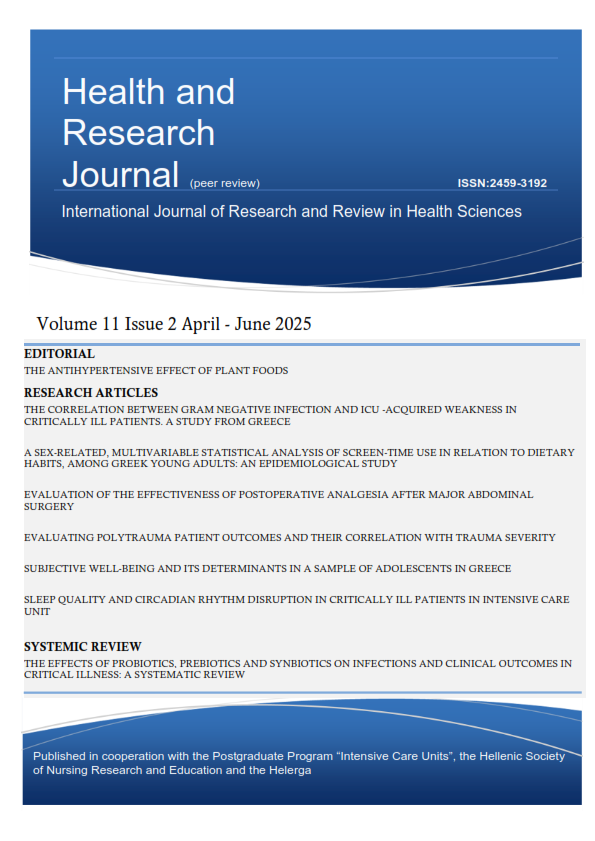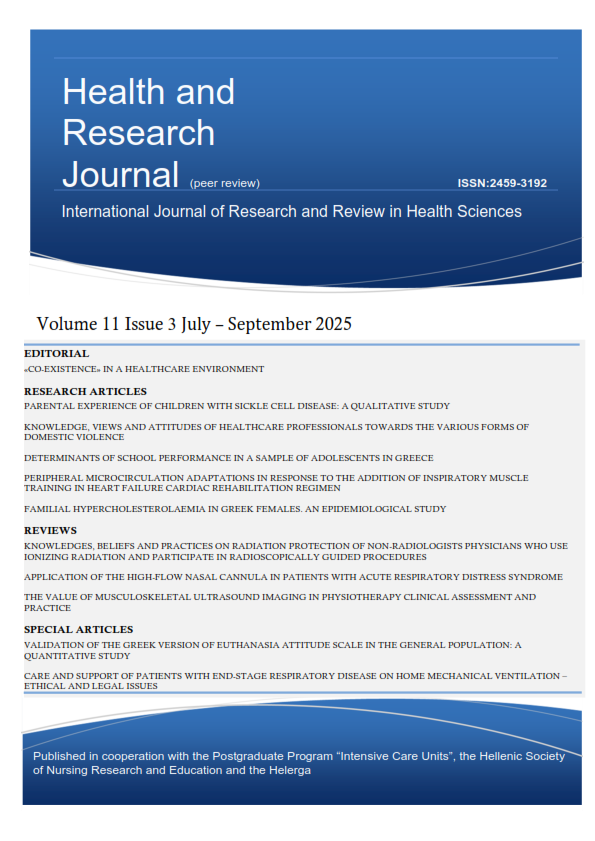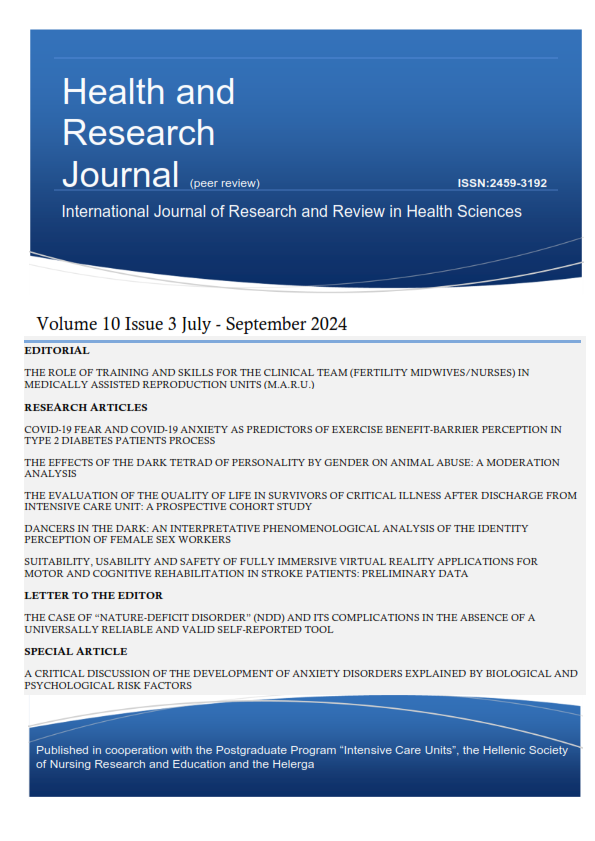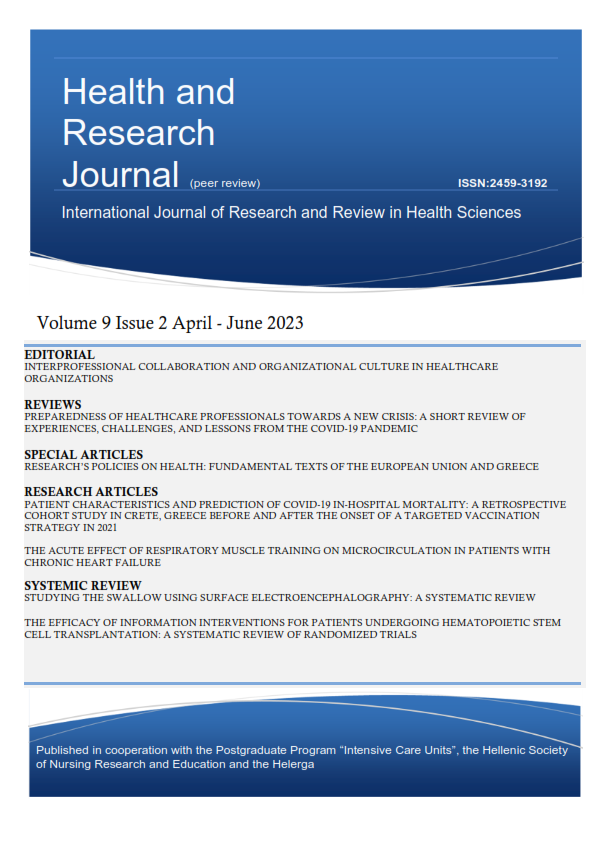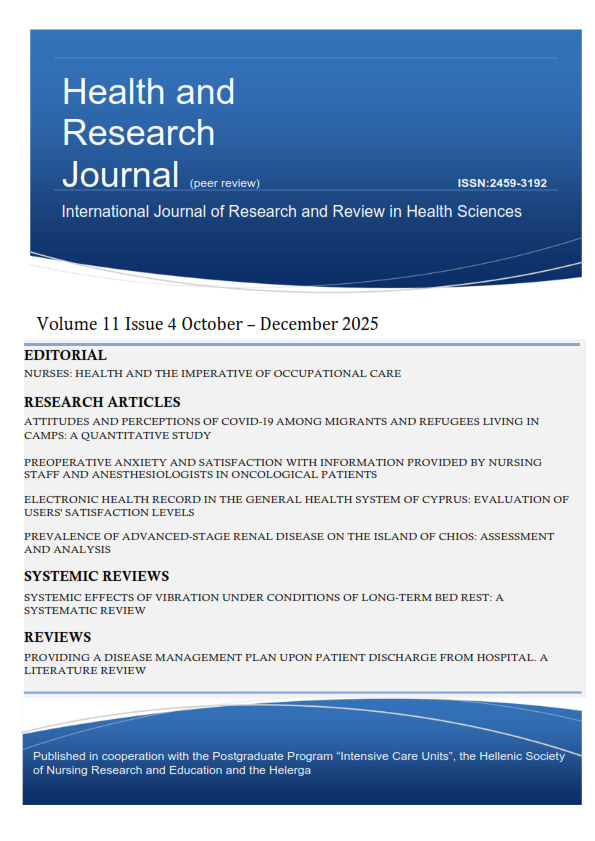The Benefits of Inspiratory Muscle Training in Heart Failure Patients – A Systematic Review
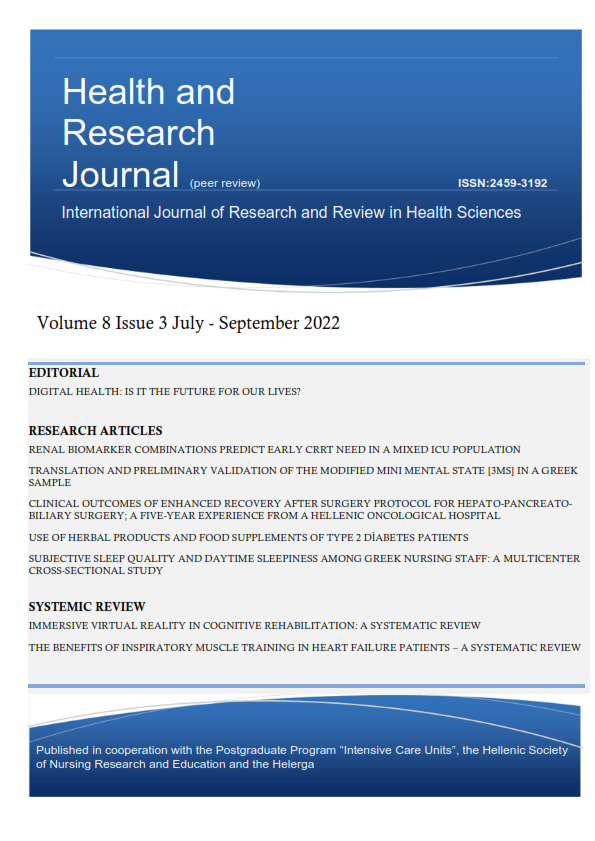
Abstract
Background: Patients with heart failure (HF) have impaired function of respiratory system and frequently experience dyspnea. Inspiratory muscle training (IMT) offers an alternative way of exercise with a lot of benefits for HF patients.
Aim: The aim of this review was to summarize and to reveal the effects of IMT in HF patients.
Methods: Electronic searches were performed using Pubmed Database, Physiotherapy Evidence Database (PEDro) and Cochrane Library. Inclusion criteria were: RCTs, patients with HF, full text articles after 2010 and at least one intervention group with IMT. Methodological quality was assessed using the PEDro (Physiotherapy Evidence Database) scale.
Results: Nineteen articles met the inclusion criteria and were included in this review. In most studies training protocols involved 3 to 7 sessions per week with intensity ≤30-60% of maximal inspiratory pressure (MIP), for a total duration of 4-12 weeks. Respiratory muscle strength improved in 11/12 studies, peripheral muscle strength in 4/5 studies, exercise capacity (peak VO2, VE/VCO2 slope) in 4/10, pulmonary function (FEV1, FEV1/FVC, FVC) in 0/5, functional capacity (6MWT) in 6/8, echocardiography parameters in 1/6, quality of life and dyspnea in 9/16. Control groups followed sham IMT, usual care, no intervention, intervention without exercise, or aerobic training, which could explain in some cases the conflicting results.
Conclusions: IMT is beneficial for HF patients and should be included as a complementary method in cardiac rehabilitation programs. The optimal characteristics of ΙΜΤ as well as the benefits when combined with common forms of exercise need further research.
Article Details
- How to Cite
-
Katsoula, C., Vasileiadis, I., Routsi, C., Nanas, S., & Karatzanos, E. (2022). The Benefits of Inspiratory Muscle Training in Heart Failure Patients – A Systematic Review. Health & Research Journal, 8(3), 242–266. https://doi.org/10.12681/healthresj.28185
- Section
- Systemic Reviews
Copyright notice:
The journal "Health and Research Journal" reserves the rights for copyright of the content of the website and also the copyright of the articles published.
By virtue of their appearance in this journal, the articles are free to be used for non-commercial purposes. However, the articles cannot and must not be used in anyway, published elsewhere or modified without any reference to the author and the first publication of the article.



